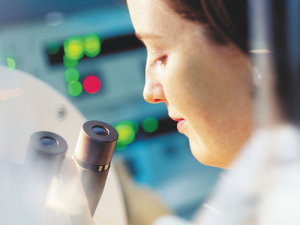NZ Catchment Groups Thrive with ‘Source to Sea’ Approach
The most successful catchment groups in NZ are those that have 'a source to sea' approach.
 MPI is calling for researchers to apply for funding to better measure New Zealand's agricultural emissions.
MPI is calling for researchers to apply for funding to better measure New Zealand's agricultural emissions.
The Ministry for Primary Industries is calling on researchers to apply for funding to better measure the country’s agricultural emissions.
The funding comes from MPI’s Greenhouse Gas Inventory Research annual funding round, which recently opened for research proposals with $2.1 million available.
Under the United Nations Framework Convention on Climate Control (UNFCCC), New Zealand must annually report its emissions through the Greenhouse Gas Inventory. This calculates and records greenhouse gas emissions from agriculture and industry in the country, as well as carbon sequestration from forests. MPI administers the agricultural side of this report.
Steve Penno says, this year, MPI is seeking proposals on nine priority areas, ranging from methane to the effects of plants on emissions.
“We’re seeking research proposals to maintain and improve our agriculture, forestry and land-use inventory. It will also be used to account for mitigation technologies as they are developed and implemented on farms in New Zealand.”
Penno says the research fund is an important tool in enabling reporting to the NZ Greenhouse Gas Inventory and the UN under the Paris Climate Agreement.
He adds that accurate information is essential for developing policy and verifying that efforts to reduce agricultural emissions across the country.
In Budget 2022 the Government committed $339 million through the Climate Emergency Response Fund to accelerate development and uptake of high-impact agricultural mitigation technologies. Of this, $1.5 million was added to the Greenhouse Gas Inventory Research fund for 2022/23, taking available funding to $2.1 million for new projects over the next 12 months.
Penno says the fund also contributes to international efforts to drive down agricultural emissions.
“As one of the only developed countries with a largely pasture-based agricultural economy, we’re also able to share our research outcomes with less developed countries with similar agricultural sectors to boost their knowledge,” he adds.
The Greenhouse Gas Inventory Research funding round is opened on 14 July and closes on 12 August, with successful proposals expected to be announced in October.
New Zealand and Chile have signed a new arrangement designed to boost agricultural cooperation and drive sector success.
New DairyNZ research will help farmers mitigate the impacts of heat stress on herds in high-risk regions of the country.
Budou are being picked now in Bridge Pā, the most intense and exciting time of the year for the Greencollar team – and the harvest of the finest eating grapes is weeks earlier than expected.
The Real Estate Institute of New Zealand (REINZ) has released its latest rural property report, providing a detailed view of New Zealand’s rural real estate market for the 12 months ending December 2025.
Rural retailer Farmlands has released it's latest round of half-year results, labeling it as evidence that its five-year strategy is delivering on financial performance and better value for members.
OPINION: "We are back to where we were a year ago," according to a leading banking analyst in the UK, referring to US president Donald Trump's latest imposition of a global 10% tariff on all exports into the US.

OPINION: A mate of yours truly reckons rural Manawatu families are the latest to suffer under what he calls the…
OPINION: If old Winston Peters thinks building trade relations with new nations, such as India, isn't a necessary investment in…